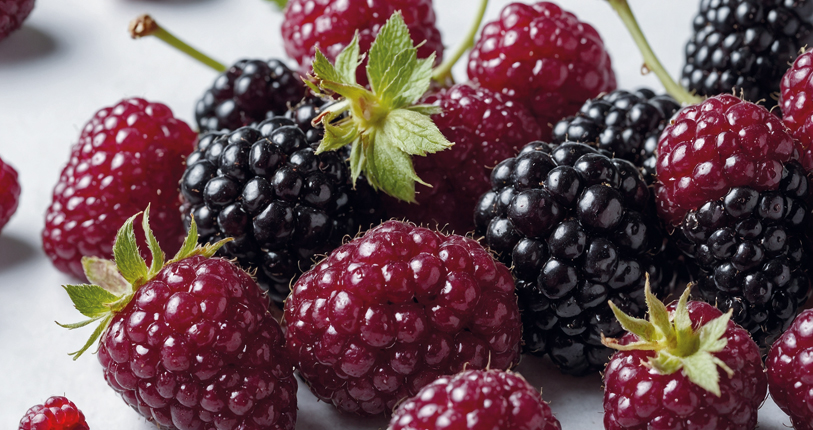A cross between a raspberry, a blackberry and a loganberry, the boysenberry was first developed and grown in the 1920s. Boysenberries have anti-inflammatory and wound-healing properties. Research shows that the anthocyanins in boysenberries are effective at reducing the effects of free radicals, which are thought to play a role in neurodegenerative diseases. High in dietary fibre, boysenberries are excellent for promoting digestive health. Fibre aids regular bowel movements, preventing constipation, and maintaining a healthy gut microbiome. It also keeps you feeling full longer, helping weight management.

